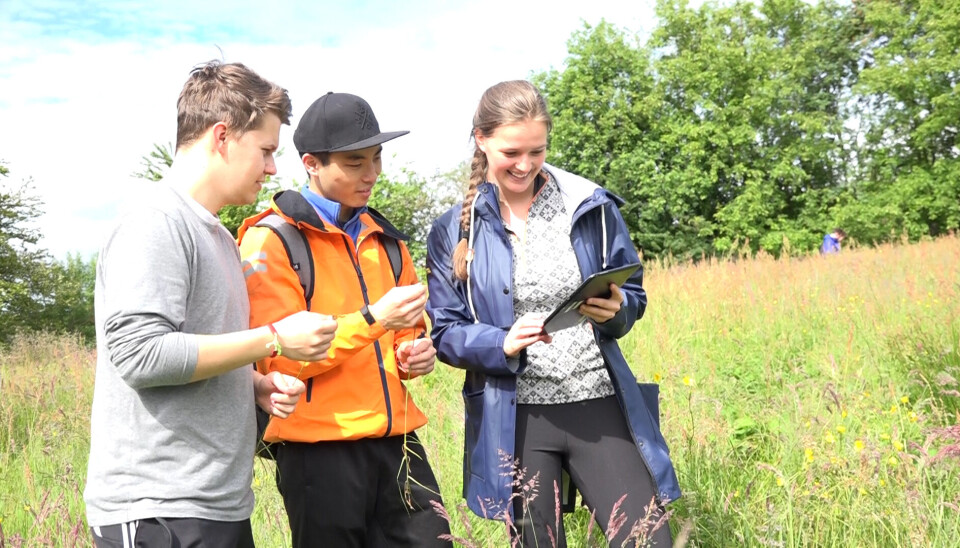THIS ARTICLE/PRESS RELEASE IS PAID FOR AND PRESENTED BY the University of Bergen - read more

Students were motivated to learn by an app
Researchers will now investigate the role that technology plays in increasing student motivation and learning.
Through six different studies, Lucas Matias Jeno and his colleagues have looked at how technology, and especially mobile technology, affects students' motivation and learning. The studies also show that students achieve increased psychological well-being.
“The students who were allowed to use a mobile app that was interactive and gave feedback along the way, aroused greater interest and more positive emotions,” Jeno says.
It started with overweight and unmotivated young people at a sports school in Bergen where Jeno was an instructor.
“I discovered that they completely lacked motivation to move, and it was clear that for many of them, it had been like that for several years," he says.
Jeno saw that some features worked better than others, and that he had to figure out their preferences, then give them a choice for what activity they were to engage in.
“It was not difficult to see that when they were allowed to choose an activity based on preference, they became much more involved in the activities," Jeno says.

Motivated to determine grass species
Jeno has conducted a study together with, among others, Edward Deci, one of the founders of Self-determination theory (SDT) in psychology. In SDT, making meaningful choices is crucial for motivation. Here they tested a mobile application, Artsapp, and examined the extent to which technology can play a role in motivation and learning. The app is specially designed for students who are learning to identify different species in biology.
“Traditionally, the students have used a book that the students found difficult and unmotivating. In particular, the identification of the grass-like species Starr has been difficult for students to identify.
The app was developed based on the self-determination theory. The researchers measured mood before and after the exercise. Before the exercise with Artsapp, both groups had the same level in relation to positive and negative emotions. Unlike the textbook, ArtsApp is more dynamic and allows students to choose features they need to identify. They get to see more and better pictures, and receive feedback along the way.
“We saw that the students who were allowed to identify grass species using Artsapp, did not have the same drop in motivation as those who were only allowed to use the book.
The study shows that the degree of independence in relation to choice, coupled with competence, provides better motivation for an exercise that may initially appear boring.
Proper design affects learning
“The role of technology in motivation and learning has interested me greatly, and we have looked at the role and method of teachers in addition to the psychological processes of students,” Jeno says.
Through several studies, Jeno has focused especially on the mobile app ArtsApp and its effect on students’ motivation to identify species, as well as students' performance in identifying the species. The researchers find that students report higher levels of motivation, mastery and learning.
"The results can be attributed to how ArtsApp is designed, and not because of the effect of the technology itself," he says.
Jeno points out that the extremes of the technology debate, that one is either completely techno-enthusiastic or techno-sceptical, as not very fruitful.

Motivation and academic success
Jeno has also looked at the factors that contribute to increasing students' academic success, and in these studies he has looked more closely at learning, drop-out and mental health.
“What we find is that students have the greatest degree of academic success in those cases where students experience support from teachers, mastery and belonging.”
Jeno emphasises that it is when the motivation of the students is self-determined, as opposed to controlled, that the students report deeper learning and an increased sense of mastery. And it is when the students' goals for studying are based on internal goals rather than external ones, that the students achieve better results and higher levels of well-being.
"We can see that students report better mental health and more commitment. They also achieve better academic performance," he says.
Reference:
Lucas M. Jeno et al. 'Testing the novelty effect of an m-learning tool on internalization and achievement: A Self-Determination Theory approach.' Coputers & Education, 2019. DOI: 10.1016/j.compedu.2018.10.008 Abstract
See more content from the University of Bergen:
-
The proteins in your blood can reveal early signs of heart problems
-
Electricity against depression: This may affect who benefits from the treatment
-
Quantum physics may hold the key to detecting cancer early
-
Researcher: Politicians fuel conflicts, but fail to quell them
-
The West influenced the Marshall Islands: "They ended up creating more inequality"
-
Banned gases reveal the age of water





































